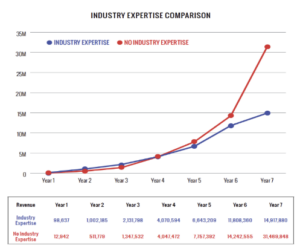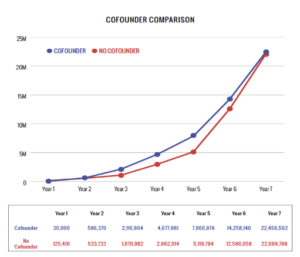
Happy Global Entrepreneurship Week! The right to start your own business with minimal interference from the government is one of the hallmarks of capitalism. To celebrate, I wanted to offer some thoughts and best practices about entrepreneurship.
In his book entitled Innovation and Entrepreneurship, the great business writer Peter Drucker points out that an entrepreneur “isn’t just one who starts his own, new small business, but who also exhibits innovation.” Innovation is the key to growth, and without growth, success has a ceiling.
The function of capital markets in the United States form a great foundational infrastructure for entrepreneurship. Venture capital, private equity, lenders, and angel investing are some prime examples – but even the most spirited entrepreneurs may experience failure due to accessing too much capital early on if they are not cognizant of the challenges to build a real business.
So what measures can new and aspiring entrepreneurs take to increase their chances of long-term success? What are some of the challenges of “innovative, growth-minded entrepreneurs,” and how can those challenges be overcome?
It takes twice as long as you think
A lot of aspiring entrepreneurs go into a venture thinking they can get their business off the ground within a year or two. However, that is often not the case.
As I discuss in my book, The Hockey Stick Principles, it usually takes around three years – what I call “The Blade Years” – for a business to experience revenue takeoff. Many innovative, growth-minded entrepreneurs make the mistake of underestimating the amount of time it takes to start a business, and they end up running out of money because they raise too much capital too soon.
Getting a business off the ground is also an iterative process that requires a lot of “tweaks” – and some of the most important tweaks occur during the first few years. It’s important to nail these minor adjustments down to avoid big “pivots,” which can result in costly detours.
If you aim to start a business, be prepared for the process to take twice as long as you think!
Experience doesn’t always translate to success
There is a false assumption in the world of entrepreneurship that having more industry experience translates into more success, and that younger, less experienced entrepreneurs “don’t know what they’re doing.” This is not necessarily true.
According to my study, innovative, growth-minded entrepreneurs with little to no industry experience oftentimes fare as well as – sometimes even better than – those with more experience. The inexperienced are at a slight disadvantage for the first three years, but as this chart shows, they typically experience more growth than industry-experienced entrepreneurs starting in the fifth year:

There are many factors that could explain this phenomenon, but I believe the central piece of the puzzle is entrepreneurial personality. Manfred Kets de Vries names three things that make entrepreneurs successful:
-
- Innovation
- Management coordinating
- Risk-taking function
Inexperienced entrepreneurs tend to be more bold and somewhat “deviant” – more likely to take high-ceiling, low-floor risks – and banks are more likely to exercise caution with them when it comes to their lending practices. Bankers are also more likely to bring forth connections with experts who can help the innovative, growth-minded entrepreneur succeed, which could pay dividends for success in the long run.
Invest in sales and marketing
Strong sales and marketing teams have to be part of any successful entrepreneurial venture. Sales is the foundation for a business, and marketing is often the backbone. Entrepreneurs need professionals who know how to target and sell to different markets as well as to different customers.
For instance, it is imperative to not only understand the differences between starting a B2B business versus a B2C business, but also to understand how to connect with each of them on a personal level. In a general sense, consumers are emotional buyers, while businesses are typically more rational buyers. Strong sales and marketing teams know how to appeal to the emotional demands of the individual consumer. For those selling to business, they should also be equipped with the industry knowledge to build trusted advisor status with other businesses in a B2B setting (which is why having a tool such as Industry Intelligence is a great selling point for sales professionals).
Having those strong sales and marketing teams is key, but so is putting them in a position to be successful. So investing in tools to help them connect with customers on an advanced level is important.
Avoid 50/50 partnerships
Having a cofounder is helpful for a number of reasons: It helps delegate responsibilities, it could expand your business’ reach in the early years, and it lessens the burden on entrepreneurs to do all the heavy lifting by themselves. At the same time, however, it is wise to exercise caution when “splitting” the share of your company.
As I discuss in The Hockey Stick Principles, growth levels out at about the same rate for those entrepreneurs with a cofounder as those going at it alone. 50/50 partnerships are often messy, and there are a lot of things that can end up being overlooked. This setup also tends to get even more messy the longer the company is around, especially as time goes on and issues of succession come into play.

In conclusion
Innovative, growth-minded entrepreneurs – and younger, inexperienced entrepreneurs – have a lot going for them. They are keen on unconventional transformation, they are bold, and they have an appetite for continuously driving success. But preparation and procedural awareness are key when it comes to running a successful startup. It is important to continuously assess risk, to build capital smartly and not quickly, and to have teams who can support each other and the business in its venture.
To all of the aspiring entrepreneurs and my fellow established entrepreneurs out there – I tip my cap to you. You are what builds the fabric of our economy, and you are the embodiment of the American spirit of innovation. So keep up the good work!
>> Want to learn how Industry Intelligence can be a vital tool for your startup? Click here to find out more and request a demo.
Image credit: Courtney Farfour, Vertical IQ